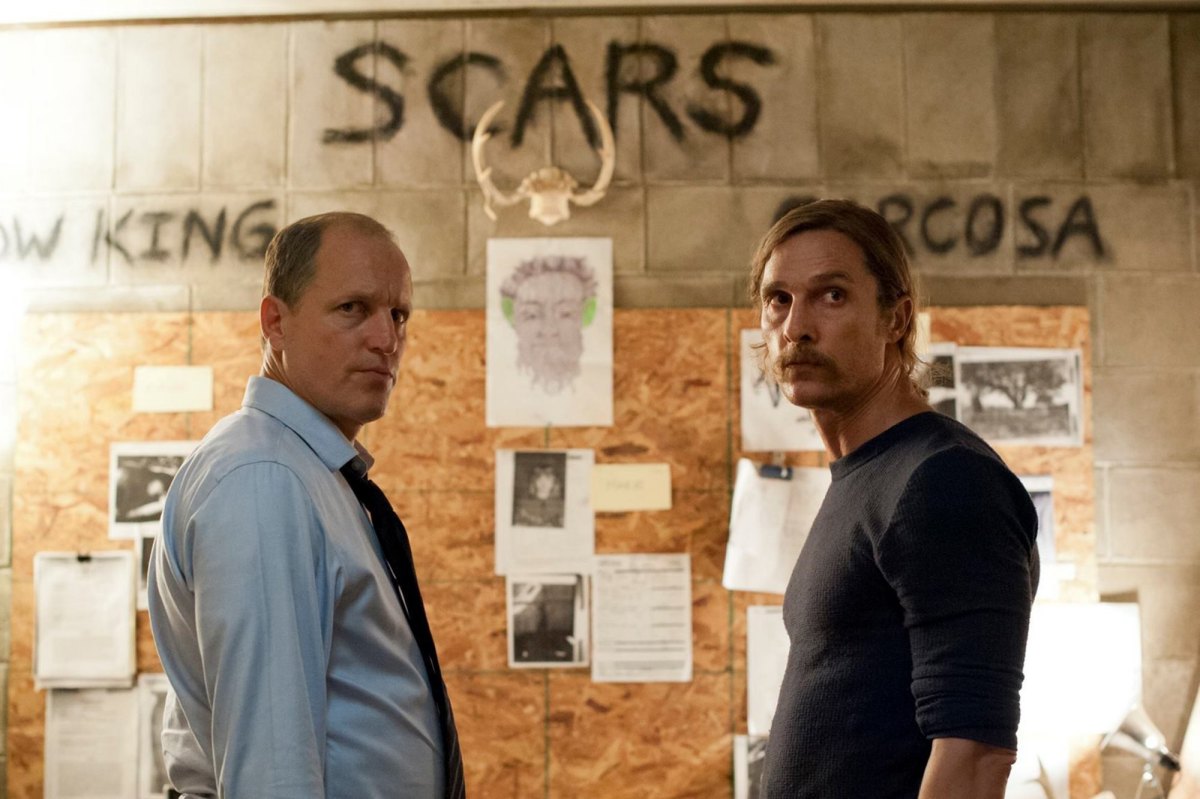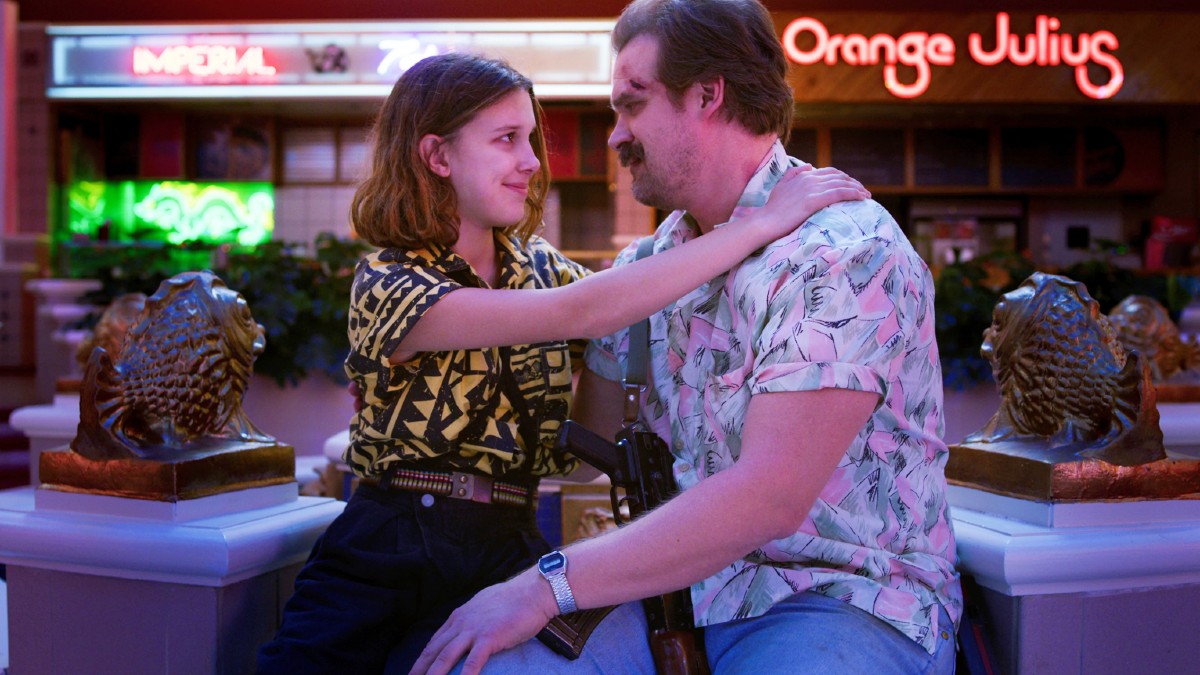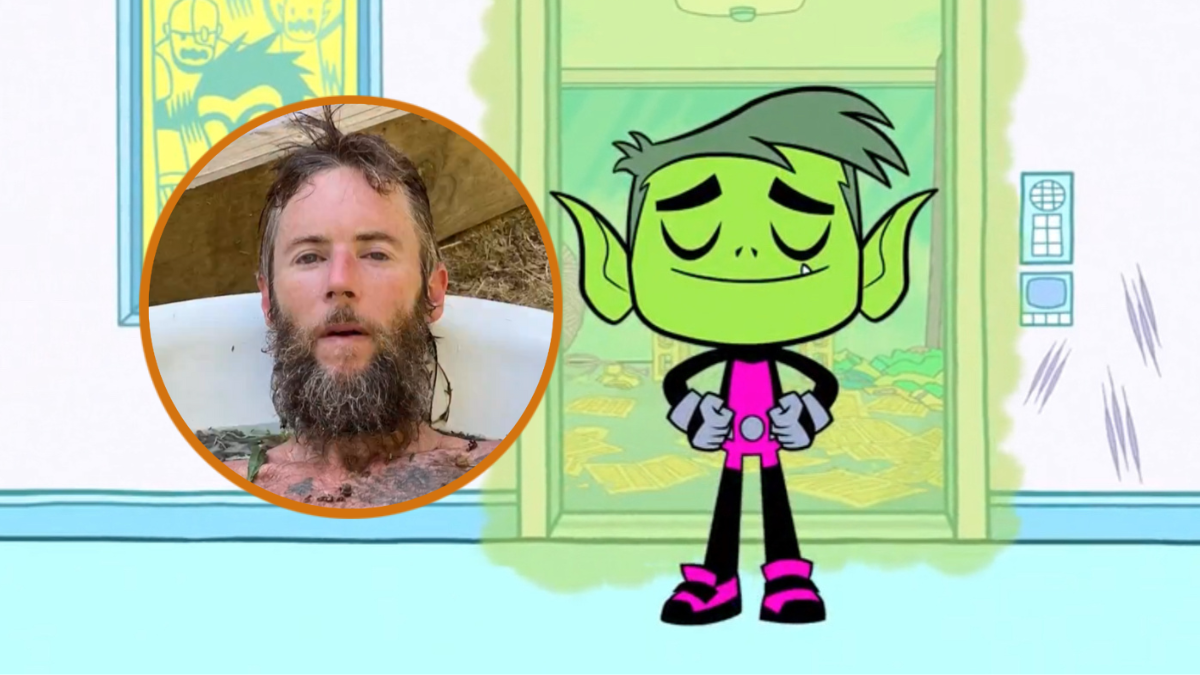Among some memorable lines, the expression ‘time is a flat circle’ stuck out in the first season of True Detective.
It was mentioned by Matthew McConaughey’s Rustin ‘Rust’ Cohle, the troubled Louisiana State homicide detective known to his colleagues as ‘The Tax Man’ thanks to his scrupulous note-taking in a giant ledger.
True Detective’s first season followed Cohle and his partner (and former partner) Martin ‘Marty’ Hart (played by Woody Harrelson) through two time periods. One saw the partners investigate the murder of prostitute Dora Lange in 1995. The other picks up in 2012 when the estranged detectives are interviewed as the Lange investigation is reopened along with several other cases.
The eight-part season was a revelation when broadcast on HBO in 2014. Ably supported by Michelle Monaghan, Michael Potts, and Tory Kittles, the leading pair were praised for their performances. The narrative, crafted by writer and producer Nic Pizzolatto, who enjoyed an exceptional level of control over the production, drew praise for its depth and themes. Carried by the performances of its leads, the season was driven by philosophical and religious themes and drew on pulp horror and comic book influences. There are touches of Alan Moore and Dave Gibbons’s Watchmen in there, along with the work of James Ellroy.
Most profound were the disturbing references to the Yellow King, a fictional entity from the cosmic horror work Haïta the Shepherd by Ambrose Bierce. That short story from 1893 had a significant effect on the later works of Robert W. Chambers, especially his short story collection The King in Yellow. It also influenced the writer many consider to be the godfather of cosmic horror H.P. Lovecraft and his first publisher August Derleth.
In the spirit of cosmic horror, there was the distinctive sense of something vast and incomprehensible moving in the background of True Detective. The show proved to be influential on detective dramas that followed, but it also supported a boom in cosmic horror, including Lovecraft Country and Color out of Space. 2021’s Doctor Strange in the Multiverse of Madness is probably the highest-profile blockbuster to draw on elements of cosmic horror.
Pessimistic Philosophy

However, when Rust Cohle talked about time in True Detective, he reinforced one of the show’s central themes and his primary character trait. A detective with a complicated history, Cohle is an extreme pessimist. He, and his view of time, suited the strand of philosophical pessimism that ran through the show. However, the words weren’t Cohle’s. He was quoting one of the most famous philosophers of all time.
“Time is a flat circle” was a phrase coined by Friedrich Nietzsche, a 19th-century German philosopher, and critic. Although he died in 1900 after a prolonged struggle with his mental health, Nietzsche’s work was tremendously influential on 20th-century western philosophy and popular culture.
One quote from his book Beyond Good and Evil has passed into common usage: “if you gaze for long into an abyss, the abyss gazes also into you.”
Nietzsche’s philosophical work, Thus Spake Zarathustra, inspired Richard Strauss’ tone poem of the same name, music that is forever attached to the dawn of man in Stanley Kubrick’s 2001: A Space Odyssey. The philosopher’s effect on popular thought has been immense, but the rapid political and societal movements that affected the West at the turn of the 19th century have often led his ideas and influence to be misused or misinterpreted.
Nietzsche’s philosophical works were connected with both left- and right-wing political movements in the first part of the 20th-century. However, this was more to do with those movements’ search for validation than the long-dead philosopher. Nietzsche’s work was often been nihilistic, but it explored and promoted passion more than the reason favored by political ideology.
True Detective didn’t misrepresent Nietzsche, but its narrative placed him in the broader context of one of the schools of thought to which the philosopher subscribed and contributed. In the end, it’s all about pessimism.
Eternal Recurrence

Pessimism in philosophy doesn’t have the same emphasis as the word we use in everyday speech. It means philosophical thought that acknowledges the darker side of existence. It can get very dark and nihilistic, although, by the nature of their occupations, philosophers approach it in different ways.
Rust Cohle’s statement that “Time is a flat circle” refers to Nietzsche’s doctrine of eternal recurrence, as explored in Thus Spoke Zarathustra. In short, it magnifies the absurdity of existence that is endlessly repetitive. Under Eternal return, Nietzsche posited that all energy recurs across time and space. Why bother?
However, the spirit of pessimism that runs through True Detective, mainly through Cohle, isn’t very Nietzschean at all. Thus Spoke Zarathustra was a philosophical exploration framed as a narrative that showed life-affirmation in the face of eternal recurrence. The idea that we should give in when faced with the reality of endless repetition and its inherent lack of hope or resolution is more in line with the work of Arthur Schopenhauer.
Another German philosophical pessimist, Schopenhauer, was a significant influence on Nietzsche. Though there’s plenty of crossover in their ideas, Nietzsche, unlike Schopenhauer and Cohle, promoted affirmation and positivity as a way to overcome the tragic implications of pessimism.
That thinking earned the name Nietzschean affirmation, also called affirmation of life. In the posthumously published collection of his notes called The Will to Power — an easily repurposed title — the concept was best explained: ‘If we affirm one single moment, we thus affirm not only ourselves but all existence.‘ That’s not a concept easily reconciled with Rust Cohle.
True Detective’s first season was a monumental moment in television, but you shouldn’t expect its philosophy to extend beyond those eight episodes if you’re catching up. The anthology series quickly moved on to a different story and (another quality) cast, which failed to live up to the first season’s lofty heights.
The second run switched its focus to corruption, murder, betrayal, and trauma before a third season recaptured some form by returning to detective work and exploring obsession across multiple time periods.











Published: May 15, 2022 08:56 pm